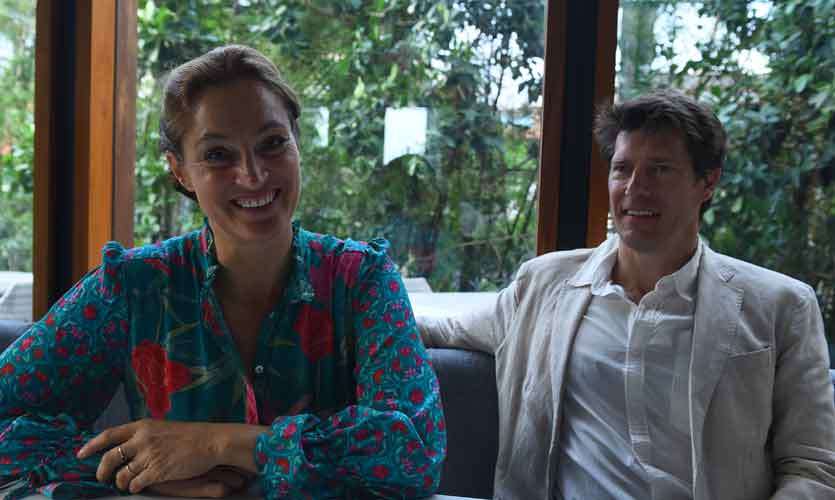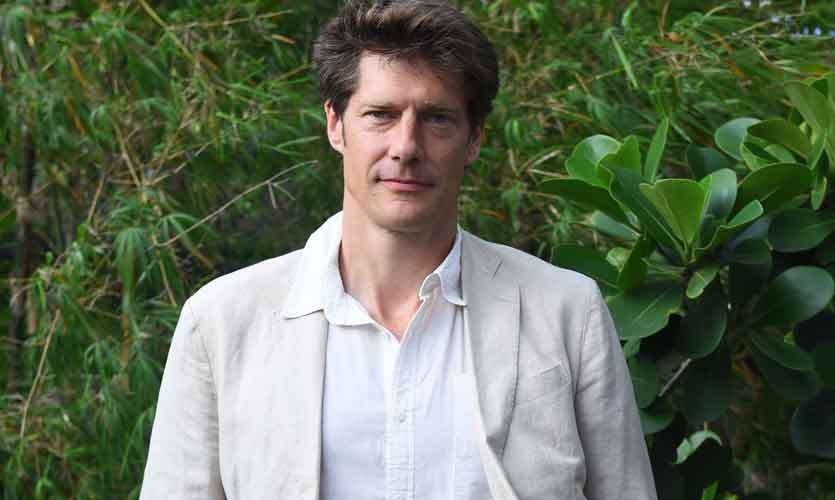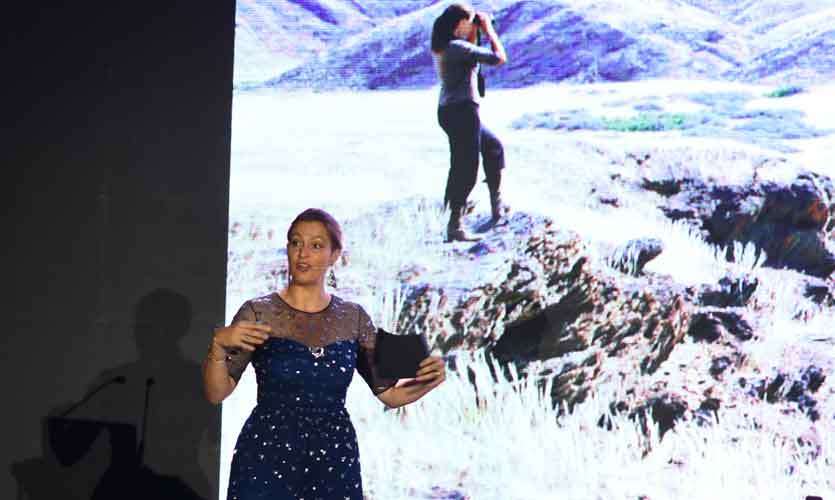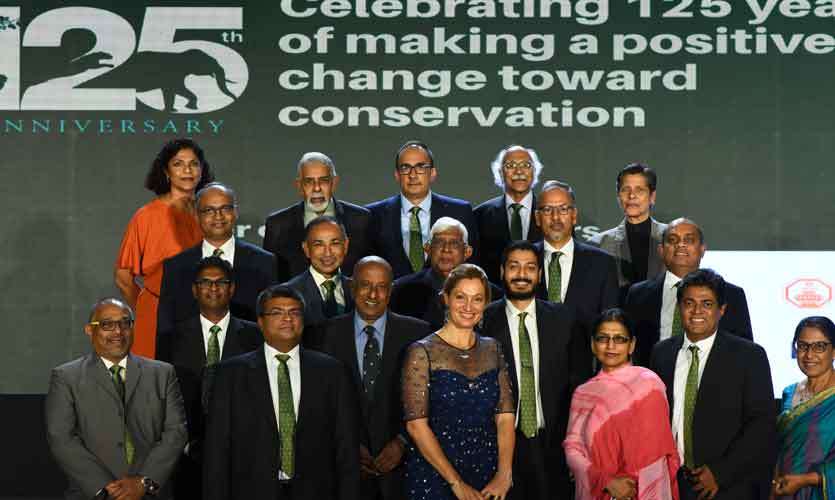
Nov 15 2019.
views 507A prominent conservationist, wildlife presenter and award-winning wildlife filmmaker,
Saba Doughlas - Hamilton is also the co-director of her family's eco-tourism business -
Elephant Watch Safaris.

Her life in Africa, and work as a wildlife filmmaker, has led her
to some of the most remote parts of the planet where she has studied rare and
endangered species in their natural habitats and experienced the frontline of
conservation first hand. She is supported by her husband, Frank Pope, and together
they are trying to further their vision in Kenya of saving the elephants.
We had the opportunity to talk to Saba and Frank about their work back in Kenya and
how they are working to stop the killing of elephants. We were further enlightened and
able to understand how we, here in Sri Lanka, could also work to protect our elephants.
Although throughout her life Saba has done many documentaries and fought to protect
different types of animals, her main focus has always been elephants. “I was born into a
family that was all about Elephant Conservation, so I guess that's how the cookie
crumbles” she quipped, adding that her goal is to enchant people about the beauty of
the elephants and make them understand the importance of conservation.

Frank adds that conservation is fundamental to every aspect of human life simply
because in the future it will be impossible to survive without nature. “Technology
,infrastructure and all other forms of development must be done keeping the importance
of conservation in mind, because if we destroy nature we would have nothing left to live
for,” he said. He added that a common problem they face when talking about this topic
is that many people complain that they are barely surviving each day and are more
worried about where their next meal is going to come from, than why and how they
should preserve the environment. But what Frank points out is that without protecting
nature there would be no survival at all.
They further stated how in countries like Kenya and Sri Lanka, where Wildlife is a vital
part of the economy, there are opportunities for people to earn their living through its
protection. During an extended period of drought in Kenya, Saba and Frank expressed
how they were able to provide jobs to many, ensuring that these people had enough
income to purchase their food. “Each person that we employed was at least supporting
10 others who were dependant on them, and by the time the drought ended many
people came to our office and said that because of the employment we provided, we
were able to save nearly a thousand people from starvation,” said Saba. “The point
here,” said Frank “is that when all other options fail we can always turn to nature to take
care of us, so instead of waiting for the other options to fail why not just make a
conscious effort to preserve nature every day.”

Talking more specifically about the threats faced by elephants, they said that in Kenya
the mismanagement of infrastructure development and over population of people who
are continuously inhabiting the territories used by elephants are a main cause for the
elephant human conflict existing there which leads to the death of many innocent
elephants as well as humans.
“Africa’s human population is surging and pushing ever more into elephant rangelands.
When farms are established where elephants are used to roaming they become a target
for crop-raiding by hungry elephants. A year’s crop can be wiped out in a single night,
creating understandable resentment. Both farmers and elephants can be wounded or
killed in the conflict that ensues. Pressure from livestock grazing in elephant rangeland
is also mounting, impacting the amount of food available for elephants and increasing
the chances of herders being attacked by nervous elephants.”

They claimed that through their organisation they try to inform the government about the
different paths that elephants take to travel and how those specific paths should and
can be avoided when building settlements. They said that they were able to get a lot of
international support in this regard but still it is a work in progress.
Another major problem is the illegal ivory trade prevalent across Africa which results in
the killing of many elephants to obtain their tusks. They even claimed that many terrorist
groups and gangs kill elephants to obtain ivory to fund their organisations.
In such an environment Save the Elephants fight hard to preserve and protect these
intelligent, amazing and beautiful creatures by constantly raising awareness and trying
to influence the authorities to take firm steps against the cruelties that are being carried
out against these animals. “We are trying to make an impact globally by bringing in
many tourists to raise awareness about the conservation of the elephants while at the
same time showing the authorities how valuable elephants are, not only to the
environment but also to the economy,” said Frank.
Here in Sri Lanka we are facing a very similar crisis with many elephant deaths reported
every year. . The best advice that Saba and Frank could give us was that in order to
minimise these conflicts the people must be aware about the elephant movements.
Instead of fragmenting the habitat of the elephants and driving them into smaller areas
of land by building railways, roads and human settlements in the path in which
elephants travel, the people should be mindful about these and do construction in a way
that these habitats and routes are preserved.

Saba was in Sri Lanka to give the keynote presentation as the Wild Life and Nature
Protection Society celebrated 125 years recently.
Pics by: Kushan Pathiraja
0 Comments